Peljesac Bridge: Giant Monument to Stalled Economic Year
As Novac/Marko Biocina writes on the 16th of April, 2020, when completed in two years, with a span totalling 2400 metres, Peljesac bridge down in Dalmatia will be one of the most impressive structures of its kind in Europe. At the same time, it will probably be the most impressive monument to an end of an era of certain global economic and political relations. Or rather, just a giant memorial to an era which simply never came to fruition.
The contract to build Peljesac bridge, which was signed with China Road and Bridge Corporation back in April 2018, was seen by many as the first proverbial swallow of the coming spring in Sino-European economic cooperation. It was the first time a Chinese company had managed to ''win'' a job co-financed, in a high percentage, by European Union funds through an entirely transparent public tender, offering some of the most desirable, favourable conditions a company engaging in such a job might want.
Of course, the winning of the tender by a Chinese company didn't go without raised eyebrows and very fierce objections from numerous European construction companies and political representatives from various countries, but in the end, the European Union reluctantly replaced the whole arrangement by recognising the Chinese company as the legitimate winner of the Peljesac bridge tender.
The move was supposed to mark the grandiose entry of a Chinese construction operative into a market that had been unavailable to the Chinese for many years, but while those dealing with geopolitics dealt with the sum of the financial and indeed reputational benefits that would be gained by little Croatia owing to the matter, the coronavirus pandemic occurred.
The cranes have, more or less, continued with their work on Peljesac bridge's existing projects which were unfinished before the epidemic broke out, but the venturing onto new ones has been halted. Once the pandemic begins to dwindle back down, whenever that may be, and investments start up once again, does anyone honestly believe that the story in which Peljesac bridge plays the main role could be repeated?
The changes that will follow in relations between the European Union, Europe as a whole and most of the Western world, with China after the coronavirus crisis, have already been more than vividly evidenced by a statement given last week by the Vice-President of the European Commission, Margrethe Vestager, who made it clear in an interview with the respected Financial Times that EU member states would , and should, protect their strategically important companies from Chinese takeover.
One might rightly note that such protectionism already existed in the European Union, in a de facto sense, but nonetheless, a public mandate for its implementation by a leading liberal politician high up in the European Commission is a clear signal in which direction the European economic pendulum is turning in regard to China.
That isn't the only signal, either. Even in their ''neglect'' of the ongoing conflict between China and the Donald Trump administration, it's interesting to note that the Japanese Government has announced, as part of its anti-recession package, that it will spend $2.2 billion on co-financing the withdrawal Japanese production facilities from Chinese territory. These Japanese-owned factories aren't necessarily expected to be returned home to Japan, but this co-financing (admittedly to a lesser extent) is also available to those companies that wish to move their operations on to third countries.
These perceptions of the risk posed by economic dependence on China, either as a manufacturing base or indeed as an economic partner, will remain a lasting consequence of the coronavirus pandemic. The need to redefine economic relations between China and the West has been a kind of elephant in the international community's room for years now, long before any talk of a rapidly spreading new virus.
While, on the one hand, China's involvement in the international economic and trade system has brought enormous economic benefits to the world over the past few years, it's hard to shake the impression that China has increasingly practiced what William Nobhaus, an economic Nobel laureate, said along the way, and that is that China is free riding, meanin that the secretive nation is enjoying the benefits of public good, but it's enjoying them without having to pay an adequate portion of the associated costs.
This cost is not only financial, but it also involves engaging in the establishment of generally accepted social norms and international standards for the functioning of social services in general. In economic terms, it has long been clear that China has been taking advantage of open trade access to foreign markets, while carefully limiting the entry of anyone else to its own. Intellectually, China has profited significantly from the selective transfer of knowledge, ideas and technologies from the West, while closing reciprocal flows off in the other direction by censoring the internet and banning foreign services.
Finally, if the growing suspicion that China's various forms of negligence and abuse have contributed to the transformation of what could have remained a local epidemic into the global pandemic we're now witnessing, its credibility as a responsible international actor will absolutely be called into question. A nation that, through its leadership in multilateral organisations, seeks to lead the implementation of international policies, such as those related to health, cannot credibly do so unless it is itself capable of demonstrating the implementation of these policies and measures at the national level, at home in China.
Coronavirus-induced sino-skepticism will spark a lot of debate in the future about what the optimal levels and models of economic cooperation with China should be, and in the European Union, where this crisis has been perceived as an existential threat, these discussions will be of a far more serious nature than they will elsewhere.
At a time when the nationalisation of individual European companies is already openly advocated as a better option than ''becoming Chinese'', one can now find it easy to entertain the thought that in the post-coronavirus era, whatever shape that takes, the Chinese will no longer build bridges in the EU.
Follow our dedicated section for more on coronavirus in Croatia. Follow our business page for more on business in Croatia.
Coronavirus Sees Dismissal of 20,000 Croatian Employees in One Month
As Poslovni Dnevnik writes on the 16th of April, 2020, the Croatian Chamber of Commerce (HGK) announced that 1,478 people re-registered a jobseekers on Tuesday, and those individuals are mostly from the trade, accommodation, hospitality/catering and manufacturing sectors, which the ongoing coronavirus pandemic has hit the hardest.
Despite government subsidies of four thousand kuna per worker, with paid contributions on top of that, 10,385 former workers remained unemployed in Croatia this month, leaving 153,122 unemployed people registered as jobseekers on Wednesday, Novi list reports.
Since mid-March, when most economic activity was frozen due to the coronavirus crisis, especially in hospitality and services, the official number of unemployed people in Croatia has increased by 19,122, an increase of almost fifteen percent, which is more than enough reason for alarm. More than 560,000 workers received the first payment of government aid of 3,250 kuna in wages for the month of March, and that number is likely to be higher for April's installment of that government-paid wages.
As previously stated, on Tuesday alone, the Croatian Chamber of Commerce said in a statement that 1,478 people had arrived to register themselves as unemployed, mostly from the trade (243), accommodation and hospitality/catering (235) and manufacturing (217) sectors.
Those same activities are also in the (unfortunately) leading positions when it comes to the two-week increase of unemployed people in Croatia, and the sad statistic here is that people from these industries account for as much as 74 percent of newly unemployed people registered in April.
As these are jobs where the average wages typically aren't significantly higher than the state support offered, employers either estimated that after three months they wouldn't start production again, or they decided to ''deal with'' these former workers in a rather brutal fashion. This is more than likely because the Croatian Government didn't make retaining all workers a condition for receiving this economic aid, but instead noted that that the number of employee dismissals must not exceed a certain percentage, and this then depended on the size of the company.
The Croatian Chamber of Commerce pointed out that the Croatian Employment Service's daily data showed a declining trend in the daily unemployment rate last week, which was influenced by the second round of anti-coronavirus job retention measures introduced at the state level.
However, in April, this data altered once again, and the Croatian Chamber of Commerce has concluded that April will be the first month to break the declining annual trend in unemployment after 72 long months. Croatia's employment patterns are very seasonal in their nature, and at this time of year it's very common to see a dramatic drop in unemployment as Croatian employers the tourist industry snap up waiters, chefs, bartenders and more. The IMF now predicts that Croatia will have an unemployment rate of 11.5 percent this year owing to the coronavirus pandemic.
Make sure to follow our dedicated section for more on coronavirus in Croatia.
Coronavirus Answering Real Estate and Overtourism Issues - Brutally
As Poslovni Dnevnik/Marija Crnjak writes on the 16th of April, 2020, there is no doubt that the current coronavirus pandemic will hurt tourism globally and severely, including Croatian tourism, and that there will be a lot of losses this year, and maybe next year, too.
At the same time, however, it is already evident that this pandemic could lead to a transformation of the market, which will be beneficial for many in the medium term, from tourists to the resident population in overcrowded destinations up and down the country. Maybe we'll even get a chance to really experience what sustainable growth actually means in reality, a term that has otherwise sounded like a pie in the sky idea to many.
As the first analyses of the rental market have already shown, in the circumstances of Croatia's significantly diminished demand for short-term rentals, the future of renting apartments and other properties, an activity which has experienced a surreal boom in recent years and caused chaos in numerous places across Europe, has been called into serious question.
The notion of overtourism was a drum that was being banged constantly until just a few months ago in Croatia's highly specific case, and it came about primarily as a result of the private rental boom.
In Croatia, what for decades has been known as ''family accommodation'', under the blessing (or indeed ignorance) of the state and local government units has turned into a grimly disloyal business where everything seems to be permitted, from the devastation of the local environment, to permit and tax issues, right down to the direct and indirect mistreatment of the local population.
There can be no doubt that the residents of some Croatian cities and towns will finally be able get some sleep this summer.
Is this finally an opportunity for hotels?
Apartments in cities that are no longer profitable for renting out to foreign tourists have already begun to turn to long-term rentals, which should become cheaper with increasing supply, thus solving the problem for many who don't own their properties. This process is happening, gradually, across the whole of Europe, where many cities have been stifled by the breakthrough of Airbnb and similar platforms, which are now looking for salvation in long-term rentals.
This segment of the Airbnb market could be well-influenced with its tools that streamline and speed up the process and reduce red tape and potential problems. Consequently, the process can also go in the direction of seeing property prices diminish, which has also been a pendulum swinging rapidly due to this kind of "tourism".
With the unburdening of many cities, the hotel industry will benefit from stopping the boom of private rentals, which, whether they like it or not, has become direct and very serious competition. In addition, hotel owners have another opportunity to switch things up and enjoy potentially more favourable terms of contracting with global brands in the post-coronavirus crisis period.
Specifically, although the travel industry has changed rather dramatically over the last ten years, hotel brands persistently adhere to strict regulations and high franchise and management fees. At a time when most hotels in the world have closed their doors, leading hotel brands such as the Marriott or Wyndham allowed delays in investments for their interior, they also reduced their fees and marketing costs, and on top of that - they delayed inspections.
If the right parties manage to meet half way during the coronavirus crisis, hotel owners could end up with looser conditions, with brands making it easier to expand their portfolio to destinations like Croatia, but also the rest of the Mediterranean, which is a ''stronghold'' still mostly dominated by local brands or independent hotels.
In the ongoing coronavirus crisis, guests could also benefit, especially local ones, who make up the main target group of tourism marketing this year, and maybe in 2021, too. Summer 2020 will depend on domestic guests from all European countries, even if the borders are opened. This is an opportunity for Croatia to adapt and implement, for example, the Cro Cards project, and perhaps some new ideas and projects that will encourage Croatian residents to explore the country more.
The Croatian National Tourist Board (HTZ) and the Ministry of Tourism could use these "lockdown" days to consider, and very carefully so, what they have available in their arsenal in this regard. Just what local entrepreneurs, innovators and local tourism professionals have to offer? It will be a challenging job knowing that Croatian tourists typically make up about 10 percent of tourist traffic, and it's very difficult to convince Croats who simply go to the houses of relatives and friends to spend a kuna or two at a Croatian hotel or guest house, even when they can quite easily afford it.
What does Croatia want in five years?
A lot of energy needs to be invested immediately in devising the right strategy for 2021. It's already clear that due to the collapse awaiting the airline industry, Croatia won't be able to count on distant markets, and therefore in advertising - the country should focus on the European continent, with a particular emphasis on those who plan to arrive in Croatia by car.
Croatia is fortunate that the Germans, Austrians, and the neighbouring Slovenians have long been the base of tourist traffic in this sense, but it should be remembered that their respective governments are, more now than ever, working to keep their tourists within their own countries, too. Consideration should also be given to what travel opportunities the Italians, who have been hit hard by the coronavirus epidemic, will ultimately have.
Safety, availability, excellent hygiene, and a dose of good organisation will be the key benefits of various destinations for as long as the memory of the coronavirus pandemic lasts, and Croatia should take advantage of it.
Now is another opportunity to sit down and imagine what kind of tourism Croatia actually wants to have in five years, and on top of that - just what we want and can develop besides tourism. Placing all of your eggs in one basket is never a good idea, and Croatia's incredible reliance on tourism and very little else at all has now proven to have been a catastrophic choice.
Make sure to follow our dedicated section for more on coronavirus in Croatia.
Expats in Isolation Top 10 Croatia Experiences: Monique from Romania in Podstrana
April 15, 2020 - As people look for escape from the mental stress brought on by the corona crisis, a new series on TCN with local expats in isolation, looking back at their top 10 Croatia experiences so far. Nex up, TCN owner Paul Bradbury from Manchester in Jelsa.
I have had a LOT of emails and messages asking if TCN could write about something happier than the constant corona updates. I hear your pain, but with so much (sadly bad) news to report and limited resources due to the crisis, this is not so easy. But then I thought of a nice series which might perhaps pique people's interests, focus on the happy stuff, and even unearth some hidden gems to explore at a later date.
Having done a very successful series with over 30 submissions from expats around the world on their self-isolation experiences in Croatia compared to what is happening in their home country, and then following that with a series on Croats in the diaspora with their corona viewpoint of their country of residence compared to the Homeland, perhaps a happier and more interesting series would be to look at expats here today and their top 10 experiences in Croatia so far.
We started in Split with Ionut Copiou from Romania.
Next up, another Romanian - Monique Ioanitescu, who is currently in Podstrana.
If you would like to contribute to this series, contact us on This email address is being protected from spambots. You need JavaScript enabled to view it. Subject Top 10.

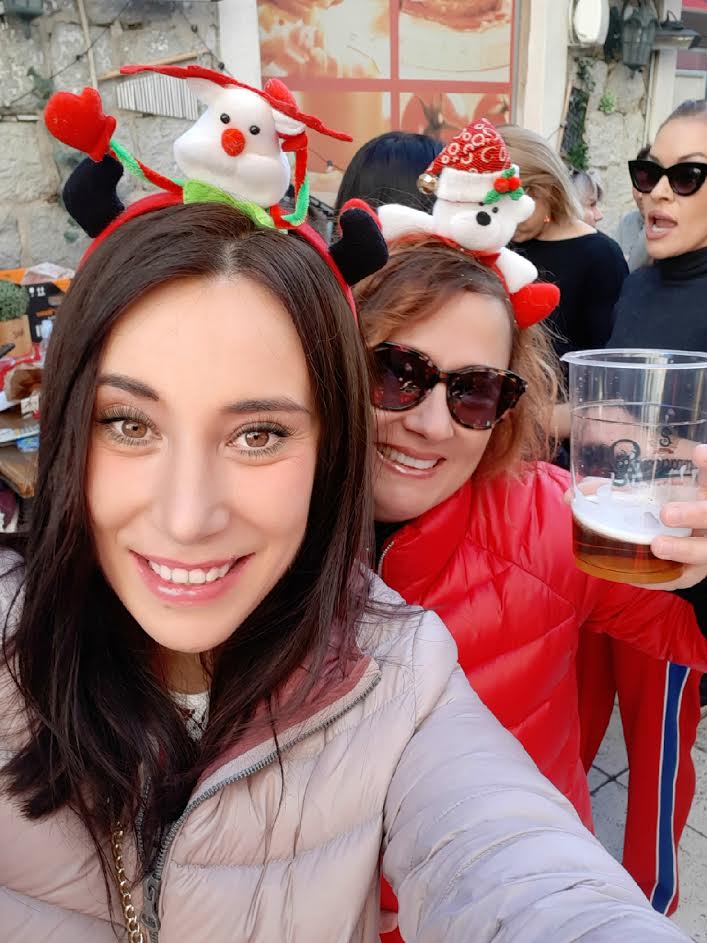

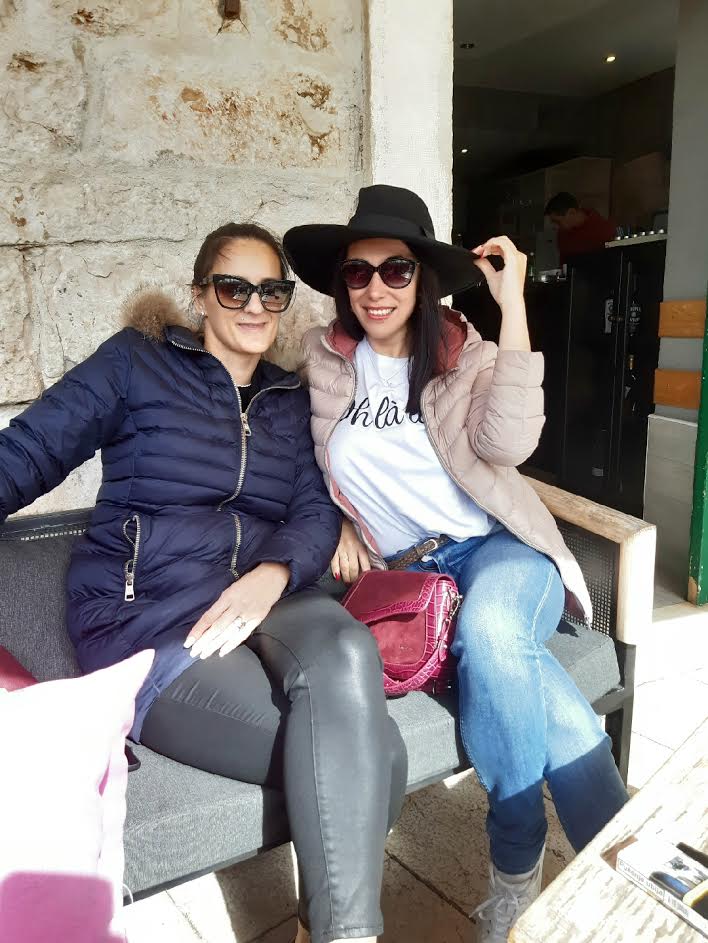
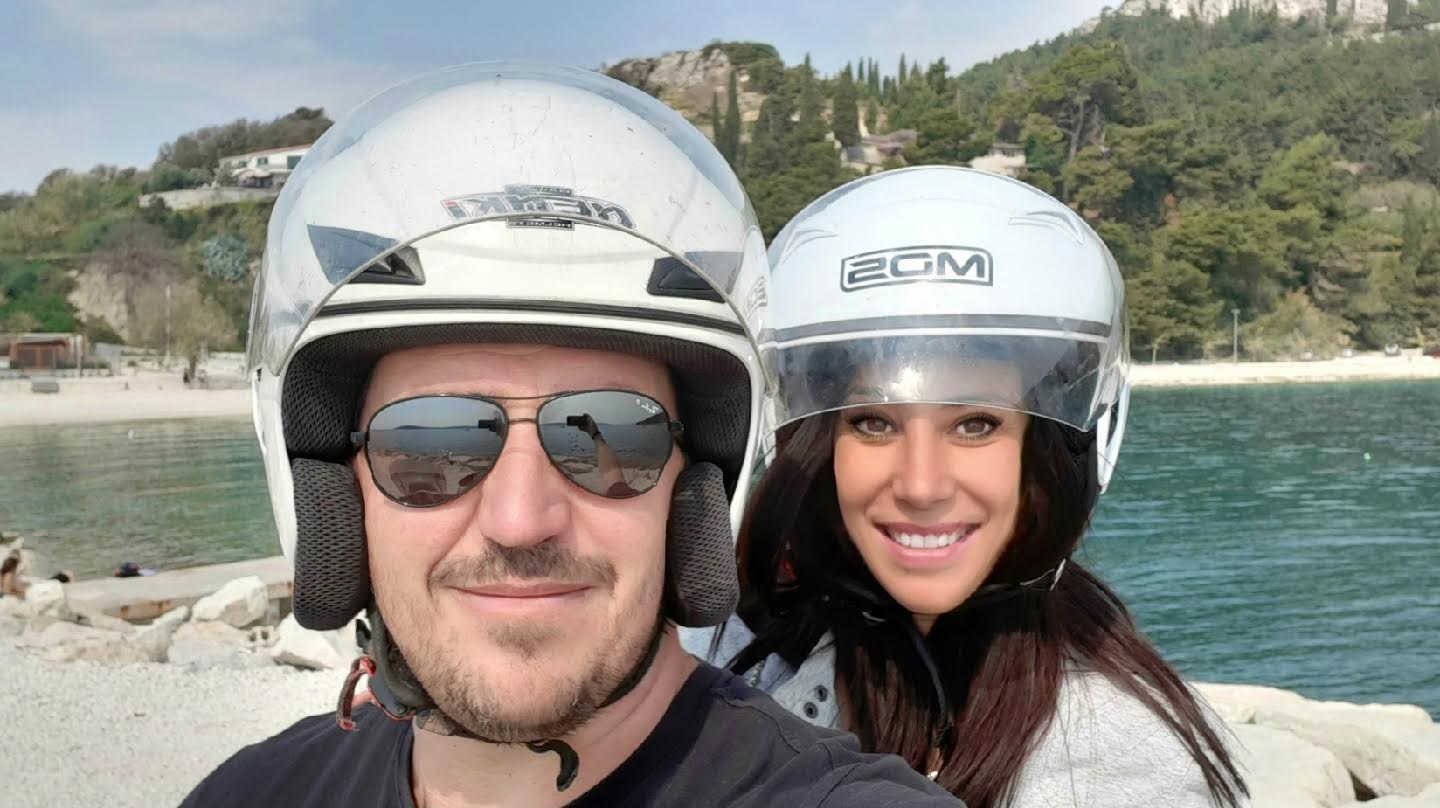
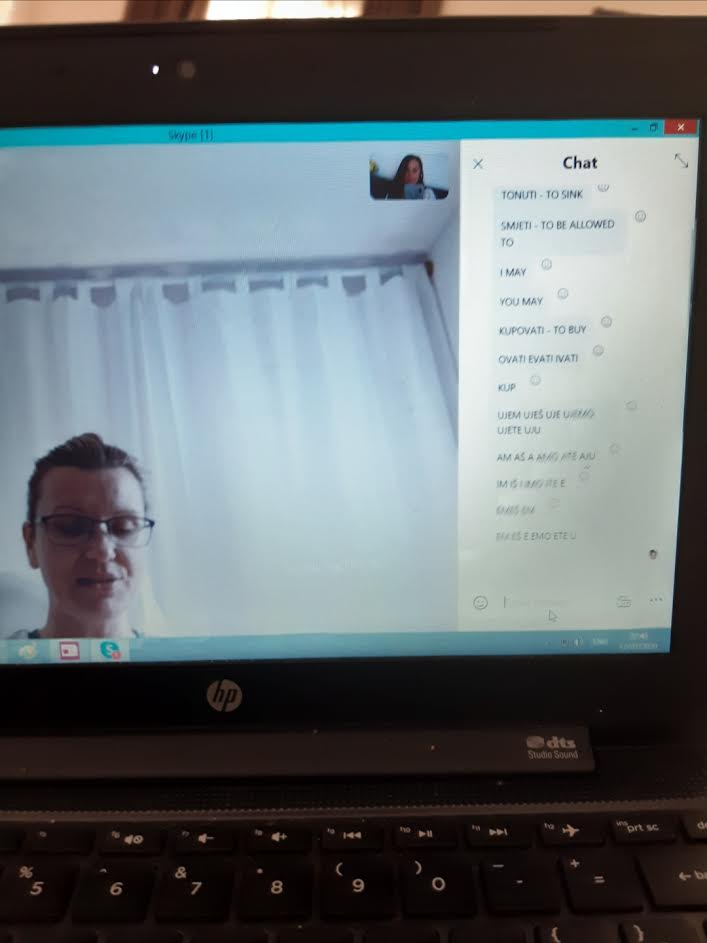

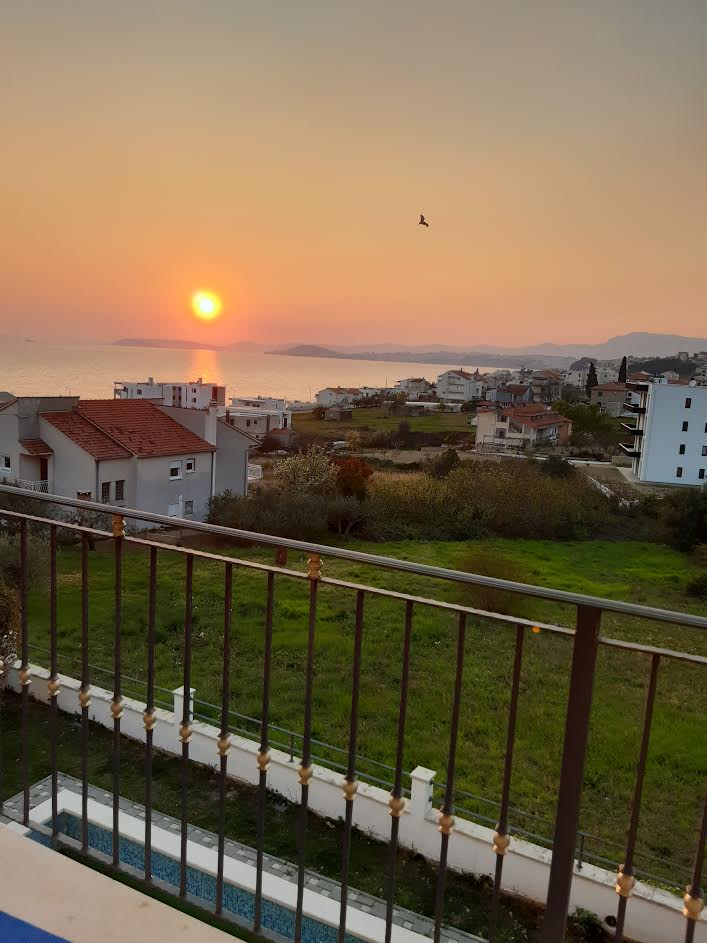
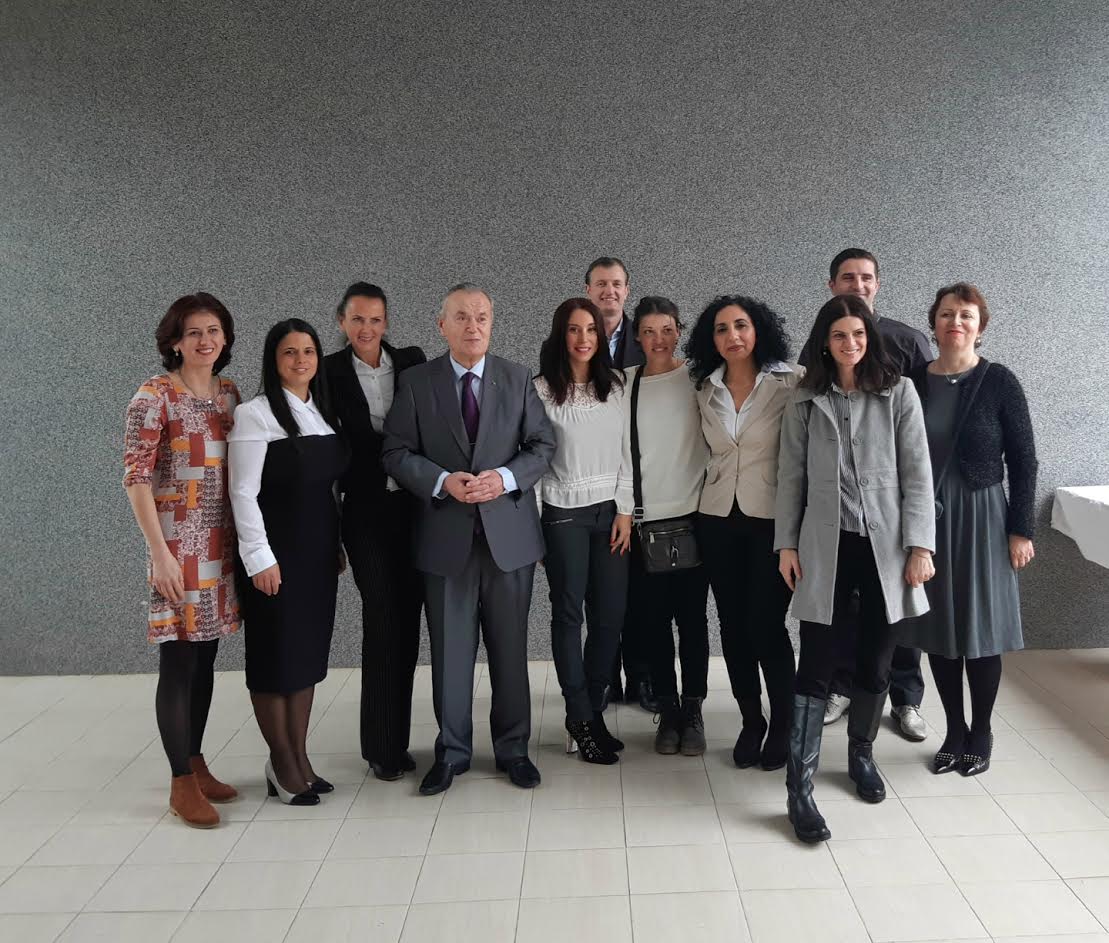
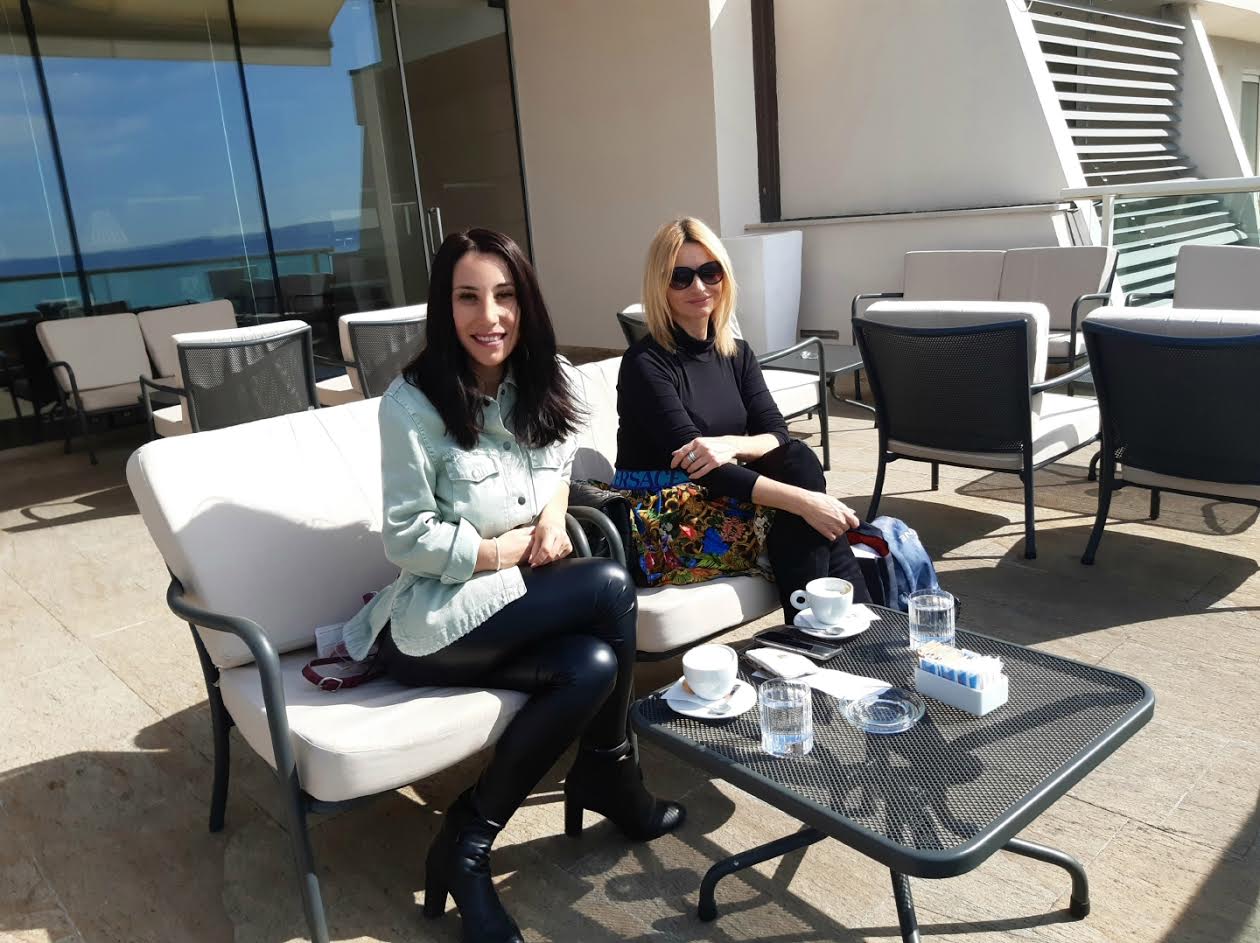
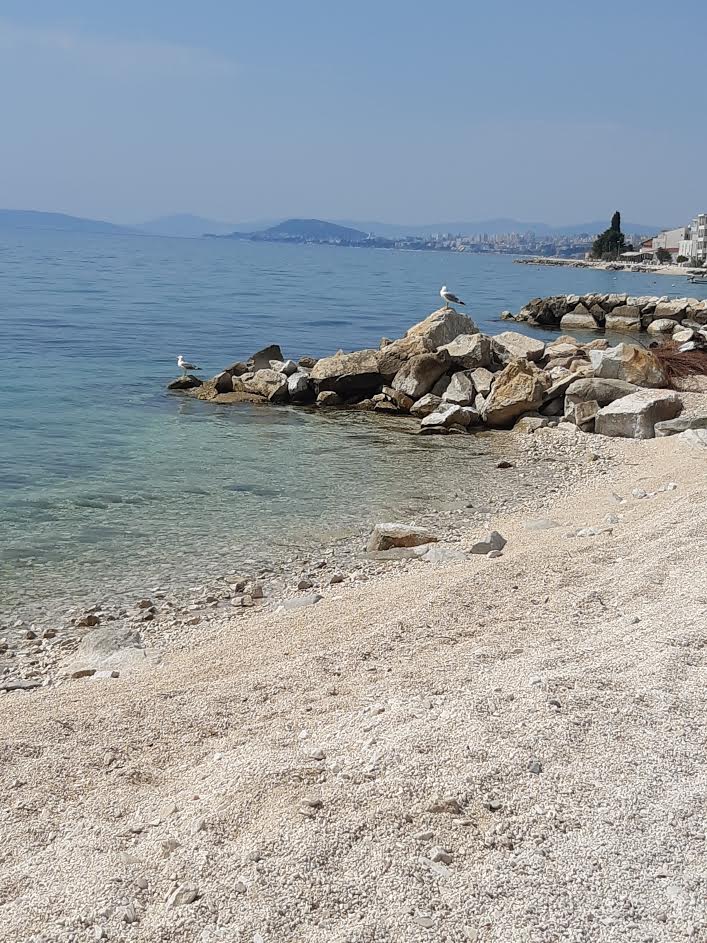
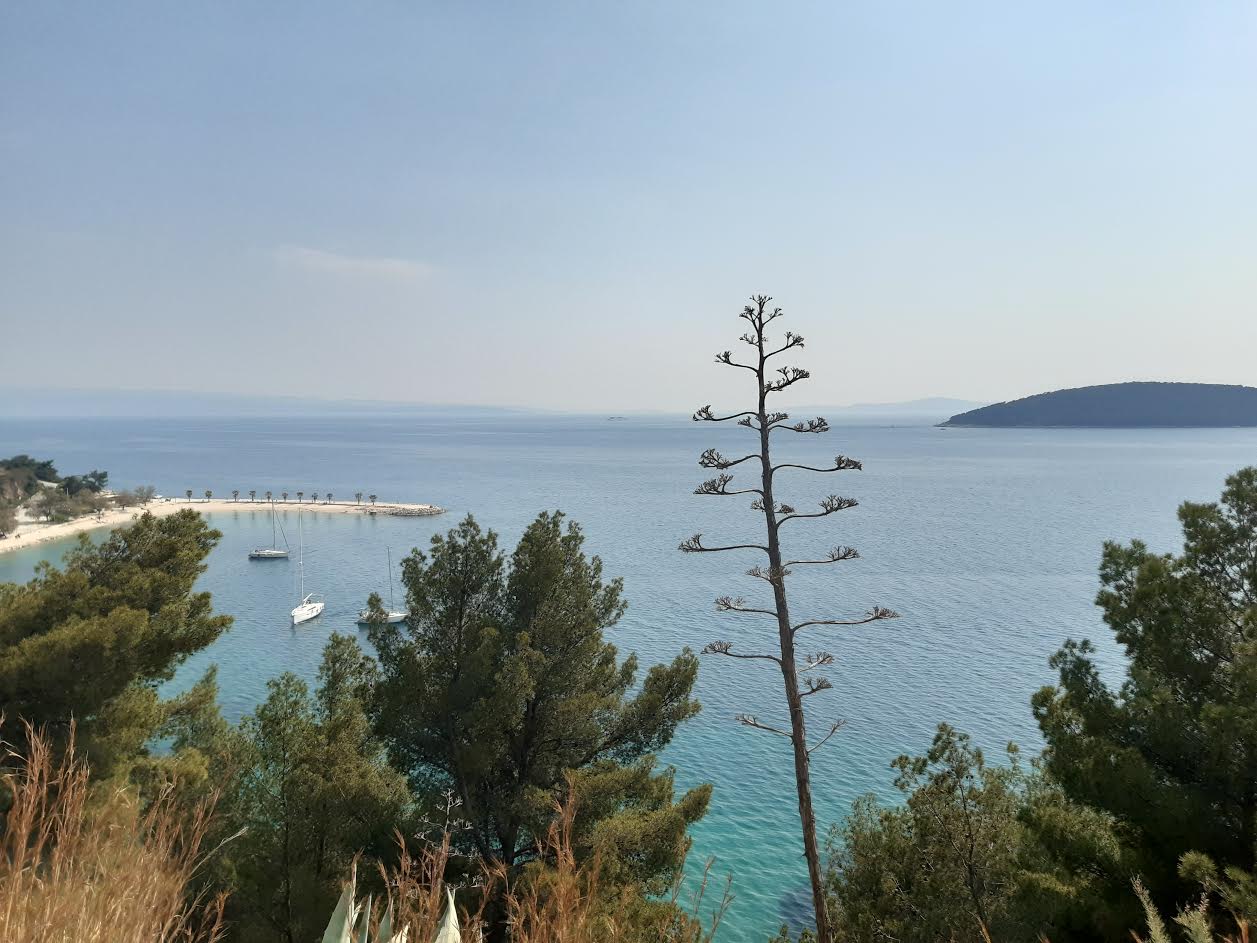
Are you an expat in Croatia with a little time on your hands and some fabulous memories and experiences to share? If you would like to participate in this series, please contact us at This email address is being protected from spambots. You need JavaScript enabled to view it. Subject Top 10.
To see the other stories in this series, as well as expat self-isolation stories compared to their home countries, and corona voices in the diaspora, visit the dedicated section.
Igor Rudan on Andrija - Digital Assistant in Croatian Coronavirus Fight
April the 16th, 2020 - Andrija is the very first digital assistant here to help with his 'superhuman' strength, all on the basis of artificial intelligence, in Croatia's fight against the coronavirus pandemic. Andrija is a digital personal assistant intended for every resident of Croatia, and you can communicate with him on WhatsApp. You can read more about Andrija in English here, and on Croatia's official koronavirus.hr website here. What does eminent Croatian scientist Igor Rudan think about Andrija? We bring you his Facebook status on the matter, translated into English, in full:
This pandemic is full of interesting stories. One of them regards Croatia's new digital assistant "Andrija", which should definitely be recorded for the "pandemic chronicles". About a month or so ago, I was contacted by my "reader of the month" from January 2020, Zoran Segic, who was almost arrested in the United Arab Emirates because he and Karla took pictures of themselves with my books everywhere, so the local authorities were interested in what was in those books, and if the content could possibly be offensive to their customs. Zoran and Karla sent me a whole album from there, as they also did later on from Africa, called "The Occupation of Dubai and Zanzibar in 26 Pictures", and they hid one of my books somewhere in each and every picture. However, this time, Zoran called me to join something that sounded really interesting, but unfortunately I couldn't find enough time: the development of a digital application for COVID-19 based on artificial intelligence.
But I was glad to hear that for this project, Zoran connected with prof. dr. sc. Branko Kolaric. I saw Branko back in 2001 as a particularly talented young epidemiologist, and as such, I included him in all of my projects: I wanted him to develop, as far as possible, a broader view and refinement in analytics alongside the ''routine'' part of his job at the Public Health Institute. Branko was with me in Edinburgh, he participated in field research as part of the "10,001 Dalmatians" project, and I'm particularly pleased, as part of that project, to have sent him to the summer school of Epidemiology at Erasmus University in Rotterdam, which was then the best place in Europe, for his postgraduate education, where he took courses such as those of Stanely Lemeshow to learn how to analyse epidemiological phenomena.
Then, he was at the European Centre for Disease Control. It's one of my greatest personal pleasures to see over and over again how any completely speculative investment in supporting young and capable people pays off over time. Here, now, seventeen years later, Branko and I have met once again, we're sitting together on the scientific council of the Government and trying to come up with some original solutions that would help Croatia to overcome this crisis as soon as possible.
In addition to those two, Mislav Malenica, President of CroAI and the director of AI at Mindsmiths, and Mr. Zvonimir Frka Petesic, the head of the Prime Minister's Office, and many others, also played major roles in this project.
Andrija's project manager was the Ministry of Administration, which implements the digitisation of Croatia's public administration. The solution was created by a team of experts led by epidemiologist Branko Kolaric, with the technical and IT support of the combined forces of the Croatian companies Mindsmiths, Neos and Oracle Croatia, who are members of the Croatian Association of Artificial Intelligence, CroAI, along with Infobip. All of the Croatian companies involved in the project have decided to make their respective contribution(s) to it for free.
Andrija is apparently named after the academic. Andrija Stampar, who emphasised the belief that "the issue of public health and the work on its promotion should be addressed by everyone, and without distinction", placing significant emphasis on the importance of citizens' cooperation and their involvement in public health programmes. The Andrija project is designed to keep up to date with the latest protocols, guidelines and knowledge that changes frequently in times of crisis.
As a contribution to the pandemic chronicles, the events have evolved as follows:
15/03/2020.
Mindsmiths decided to develop a solution to help fight coronavirus that will focus on providing citizens with the correct advice.
16/03/2020.
Mindsmiths developed a prototype of a triage algorithm in collaboration with prof. Branko Kolaric from the Andrija Stampar Institute.
23/03/2020.
Other companies from the CroAI Association; Neos, Infobip, Oracle Croatia all joined the initiative.
24/03/2020.
A meeting was held to present the idea of the digital assistant made by CroAI companies to the Director of the "Dr. Fran Mihaljevic" Clinic for Infectious Diseases, Alemka Markotic, CES Assistant Director Marija Bubas and the Head of the Prime Minister's Office, Zvonimir Frko-Petesic.
26/03/2020.
Companies from the CroAI Association made the digital assistant available to the Government of the Republic of Croatia, free of charge.
30/03/2020.
Andrija's triage algorithm was tested by the profession led by prof. Branko Kolaric. Based on the feedback received, its algorithm was further refined.
31/03/2020.
At a Government meeting attended by Prime Minister Andrej Plenkovic, Andrija the digital assistant was given the green light.
06/04/2020.
Andrija's first test with 500 citizens was given a great first reaction. Symptom descriptions and simplified location division were further clarified.
08/04/2020.
A working group was officially established to lead the new Andrija digital assistant, headed by prof.dr.sc. Branko Kolaric in front of the Ministry of Health, which also included representatives of the Ministry of Administration and members of the CroAI Association.
10/04/2020.
Facebook approved the name: Andrija of the Ministry of Health of the Republic of Croatia, and Andrija got a green check mark next to his name.
13/04/2020.
Journalists began testing Andrija. The first questions arrived. Preparations for Andrija's official launch were underway.
14/04/2020.
Andrija was officially presented by the Croatian Government at a press conference.
These are the statements from key people involved in the ''Andrija'' project:
Mislav Malenica, CroAI President and Mindsmiths' AI Director:
''CroAI brings together companies from Croatia who believe that artificial intelligence is a fantastic opportunity for our country that we must not miss out on. In these uncertain times, we're proud of the fact that our member companies have become active and are trying to help combat the pandemic with their solutions. Andrija is one such solution, and at the same time, it's proof that artificial intelligence can be smartly integrated into the public health system and motivate people to actively adhere to the guidelines for the benefit of their health.''
Branko Kolaric, PhD, epidemiologist from the Andrija Stampar Institute:
"Countries that have had the most successful responses to the spread of the disease during this pandemic, such as South Korea and Singapore, have used digital technology to address people on an individual basis. Andrija will help Croatian epidemiologists and the entire healthcare system control the COVID-19 epidemic. During these times, when doctors more burdened than they usually are, a digital assistant can quickly and efficiently provide citizens with up to date information and recommendations. Bravo to Mislav Malenica, Zoran Segic, Jan Stedul, Olga Plazibat, Kristina Fister, Tanja Nemeth Blazic, Mario Sekerija, Mario Aunedi Medek, Bruno Cvetkovic, Zvonimir Frka-Petesic and everyone else who supported this.''
Zoran Segic, Oracle, wrote on his Facebook profile:
"For the last four weeks, we've been intensively working and socialising with open, smart, proactive, critical, positive and optimistic people from across the public and real sectors, from different professions, with different values, and with different political commitments, with the sole purpose of delivering something that will help to relieve our health and hospital systems and enable partial self-diagnosis and proactive communication with citizens in the fight against the currently present COVID-19.
The result of this work are the ePasses (e-propusnice) and Andrija the digital assistant. I know that there will always be critical and distrusting people, but for me, as a citizen of this country who doesn't want to leave it and go to a better place because I want to remain enthralled with the belief that there is no better country or better place to live, I've been positively surprised, so I'm free to say that I'm also delighted to see that there were no divisions at any time, that any differences and opinions of the interlocutors were properly appreciated, that the public and private sectors encouraged each other when things were difficult, and that they brought out the best in each other through positive reviews and suggestions, and that they managed to produce two exceptionally beautiful stories in less than a couple of weeks.
They will, like with any other story, have their supporters as well as their critics, for me personally, when we collect impressions, they somehow provide hope that everything is possible if we think rationally, respect each other and if we reach for some higher goals for the future society or state, I won't say prosperity, but those [goals through which] everyone could live well and promisingly, with some of their small and particular interests. Team, you've been wonderful, I'm sorry if I accidentally missed someone out, I consider it a privilege to be able to spend time with you and have the opportunity to work with you, exchange experiences, learn what tolerance, discussion, the appreciation of your interlocutors and difference of mind mean, and as such, grow a little more.
And let's not forget one important thing, which regards volunteering and donation, where there was almost no material or financial interest on either side... Branko Kolaric, Jan Stedul, Mario Aunedi Medek, Davorin Capan, Neven Bratranek, Igor Rudan, Nika Lazic, Stjepan Oreskovic, Mislav Malenica, Mladen Vukmir, Bojan Stipic, Zvonimir Frka-Petesic, Ivan Malenica, Sasa Bilic, Bernard Grsic, Tomislav Pokaz, Mate Car, Alemka Markotic, Vili Beros, Ivan Lakos, Ivan Miljak, Olga Plazibat, Robert Kopal, Kreso Zmak, Gino Simic, Izabel Jelenic, Marin Tadic, Ana Marija Mlinaric; Vladimir Knezevic. And a special thanks to the self-sacrificing Mladen Novosel who mentored and encouraged us all like a story being told from start to finish.''
Congratulations to Mislav, Branko, Zoran, Zvonimir and everyone else. Personally, I only regret the fact that we needed a pandemic to get people in Croatia to start doing things like this, because so many people in Croatia have excellent ideas, but they're rarely allowed to develop them further. I believe that many people have been surprised over the past month to see what we, who have been living abroad, have been hinting at for a long time now: Croatia's isn't all that far behind EU countries, nor are many EU member states these excellently functioning, promised lands that we've become used to thinking of them as.
This text was written by Professor Igor Rudan, originally posted on his Facebook profile, and translated by Lauren Simmonds
For more on the coronavirus pandemic in relation to Croatia, follow our dedicated section.
Croatian Telecom Donates 4 Million Kuna to Clinic for Infectious Diseases
The coronavirus crisis has seen many a Croatian company provide generous donations to various hospitals and other health institutions up and down the country. From INA to HS Produkt, the desire for hospitals fighting the virus head on to have the proper equipment to do so has brought out the best in many companies wanting to help procure respirators and other items. Croatian Telecom is yet another.
As Poslovni Dnevnik writes on the 15th of April, 2020, Croatian Telecom (Hrvatski Telekom) has generously donated a massive four million kuna to the ''Dr. Fran Mihaljevic'' Clinic for Infectious Diseases in Zagreb to help them in the ongoing and difficult fight against the spread of the new coronavirus, the company stated on Wednesday.
''With this donation to the ''Dr. Fran Mihaljevic'' Clinic for Infectious Diseases, whose experts have been working on the suppression of the [coronavirus] epidemic since the very first appearance of the coronavirus in the Republic of Croatia, we wanted to contribute and support their further efforts,'' read a statement on the donation provided by Croatian Telecom.
''Every day, we're witnessing the heroic deeds of doctors, nurses, medical professionals and everyone who works tirelessly for the common good during these difficult circumstances. With this donation, we'd like to contribute to the [efforts of] the ''Dr. Fran Mihaljevic'' Clinic for Infectious Diseases, which was chosen because it is an institution that has been on the front line of defense since day one and, and we're all indebted to its engagement,'' said the Chairman of the Board of Croatian Telecom, Kostas Nebis.
The now very well known and widely celebrated director the ''Dr. Fran Mihaljevic'' Clinic for Infectious Diseases, Alemka Markotic, said on the occasion that this generous donation would provide for even better conditions for the treatment of patients in the phase of the most intense fight against the spread of COVID-19.
Make sure to follow our dedicated section for rolling information and important updates on coronavirus in Croatia.
Coronavirus: Are International Reserves Sufficient for Kuna Stability Defence?
As Novac/Marina Klepo writes on the 15th of April, 2020, after several weeks of strong pressure on the exchange rate owing to the ongoing coronavirus crisis, the Croatian kuna has finally started to strengthen against the euro over recent days. The reason for this, according to the Croatian National Bank (CNB/HNB), could be the fact that financial institutions settled their foreign currencies and adjusted the currency structure of their respective balance sheets, which were of course disturbed by the outbreak of the coronavirus pandemic.
In order to meet foreign exchange demand and preserve exchange rate stability, the CNB has held as many as five foreign exchange interventions in less than a month and has sold a total of 2.5 billion euros to the banks. The country's international reserves have also fallen to around seventeen billion, the lowest level since the end of 2018.
Although the exchange rate has grown somewhat calmer, general uncertainty caused by this unprecedented situation in which we all find ourselves suggests that pressures on the exchange rate will continue in the coming period, raising the question of whether Croatia's foreign reserves are ample enough for the central bank to maintain exchange the kuna's rate stability.
If Governor Boris Vujcic is asked about the above, there is no need to fear, even in the event of a prolonged coronavirus crisis and the complete absence of foreign exchange inflows in the tourist season of about ten billion euros. Over recent weeks, Vujcic has repeatedly reiterated that Croatia's international reserves "by all of the usual metrics" are more than sufficient to maintain the kuna's exchange rate stability.
There are more indicators of the adequacy of foreign exchange reserves on top of that, too, which are most often measured against the value of imports. The central bank would have to provide enough foreign exchange to pay its import obligations within three to five months. IMF data shows that Croatia's foreign exchange reserves cover the value of imports for 8.66 months. At the end of last year, according to Zrinka Zivkovic Matijevic, an RBA analyst, this coverage was a little longer, more specifically 9.3 months, "but the current levels indicate that they're more than sufficient." In addition, there is likely to be a significant decrease in imports during the coronavirus crisis, so the financing needs that come with that are likely to differ, too.
Since the outbreak of the 2008 financial crisis, the IMF has repeatedly stated that the Republic of Croatia's foreign exchange reserves are lower than the "standard adequacy criteria" and that they're not in line with the importance of the exchange rate for Croatia's monetary policy. However, the CNB has denied such claims by the IMF, pointing out Croatia's specifics, such as the foreign exchange assets of commercial banks, which are considerable. In addition, reserves have increased significantly over recent years, while the level of external debt, for example, has actually decreased. Six years ago, short-term debt coverage ranged from 85 to 90 percent.
Finally, the IMF believes that reserves can be deemed optimal if they range from 100 to 150 percent of the new "adequacy metric", and in the case of Croatia - they are now at 1.37 percent.
Regardless of what the metric shows, numerous examples throughout history suggest that, regardless of their amount, foreign reserves are sometimes not sufficient to defend the value of a currency. In cases where confidence in the sustainability of the system has become disturbed and stronger foreign exchange purchases begin, it's difficult to defend a domestic currency, but it isn't impossible, as was shown with the case of Latvia back during the financial crisis.
In the event of heavy exchange rate pressures, the central bank may further reduce its kuna liquidity and thus its leeway to purchase foreign currency. However, in times of crisis, when liquidity becomes crucial, it is certainly not a desirable development.
To mitigate the effect of the kuna liquidity drag on foreign exchange intervention, the CNB purchased government securities back in March in the amount of 4.29 billion kuna. The excess liquidity of the banking system remained at a high of 32.2 billion kuna, so the interest rate at which the government was borrowing in the short term remained at a record low.
Whether high liquidity and thus low interest rates for the country, as well as for all other sectors, can be maintained will depend on just how strong the pressure on the exchange rate will become as the coronavirus crisis drags on and pitentially digs its heels in even more.
Make sure to follow our dedicated section for all you need to know about coronavirus in Croatia.
IKEA Croatia Guarantees Work Positions for All Employees During Crisis
IKEA Croatia will continue to monitor the unfolding coronavirus situation in the country and support those in need, including their own employees, the community, customers and all of their partners.
As Poslovni Dnevnik writes on the 14th of April, 2020, IKEA and of course IKEA Croatia's vision has always been to create a better everyday living situation for as many people as possible. In this emergency, IKEA Croatia wants to continue living with this particular vision more than ever before, and as such has taken steps to ensure continued support for its employees and the wider community.
Although the Zagreb-based department store and the five IKEA Croatia delivery centres (located in Dubrovnik, Osijek, Rijeka, Split and Zadar) remain closed, IKEA Croatia recently announced that it will guarantee jobs and 100 percent income for all of its 611 employees as long as government measures remain in place.
IKEA Croatia will also ensure additional benefits to its employees who continue to ensure that IKEA's home furnishing solutions continue to be available online and with the availability of contactless home delivery during these times. IKEA has made sure that their employees get to work in an environment that is organised in accordance with strict safety measures, with appropriate protective equipment and in full compliance with the recommendations for social distancing.
"Since the outbreak of the COVID-19 epidemic, we at IKEA Croatia have done our best to respond to the needs of as many people as possible. Although our business was strongly influenced by the current situation, we wanted to do everything possible to protect the lives of our employees while maintaining business continuity throughout this extraordinary period. Our absolute priority is to protect our employees for the remainder of this crisis and to allow for as many of them as possible to work full time,'' said Nikolaos Migkianis, Director of IKEA Zagreb.
The huge Swedish company has stepped up its crisis response efforts, allocating more than 1.5 million kuna in product donations to the Croatian healthcare system and other community support. In partnership with the Red Cross and various government institutions, IKEA provided assistance to COVID-19 patients, medical professionals and members of vulnerable communities, including donations of mattresses, textiles, food and other products.
Make sure to follow our business page for more. Follow our dedicated section for rolling information on coronavirus in Croatia.
Rent-a-Car Industry in Croatia After Emergency Measures to Save Jobs
April 16, 2020 - The rent-a-car industry in Croatia generates as much as 90 percent of its revenue from tourism, and the entire sector has come to a halt because of the coronavirus crisis.
HRTurizam reports that the annual income of rent-a-car businesses in Croatia is estimated at approximately 150,000,000 euro incl. VAT - most of the foreign exchange paid directly from tourists and agents from abroad.
Rent-a-car coordination HUP, therefore, proposes the adoption of urgent additional support measures for the sector, to ensure the retention of employees and the maintenance of rent-a-car companies until the business normalizes.
The following four emergency measures are required to preserve the rental car industry:
- The leasing moratorium should be agreed for a realistically viable period of 18 months through changes to the moratorium and repayment schedules of all those affected by the crisis
- Suspending airport lease payments during commercial flight suspension and percentage reductions after passenger traffic commence (2019/20)
- Extending vehicle registration from 1 to 3 months when the vehicles are out of operation and extending the period within which a new vehicle must be registered
- Suspending payment of RTV fee
It is of utmost importance in the financial assistance package to present to the Croatian Government the real illiquidity of tourism in the first part of the year and the positive cash flow where the possible surplus (profit) is realized only at the end of summer, so it is important to plan all the delays (credit, leasing and other) with a minimum grace period until September 2021 as the other options are not realistic, points out Mladen Petreski, President of the rent-a-car coordination HUP and adds:
"We welcome the April package of Government measures that have brought major shifts and assistance to the economy. We expect that significant relief in the area of parafiscal levies will be made soon. As vehicles are our primary means of work, all vehicle-related charges need to be dropped in our industry. That is why we hope that the proposal to postpone the obligation to register new vehicles and to extend the validity of registrations for as long as the vehicles were out of service will be considered soon. Although rentals were included in the Government's moratorium and restructuring measures, rental companies are currently granted a 3-month delay, which is not enough for our companies. It is imperative to provide a moratorium of at least 18 months for the duration of the suspended income and low liquidity period.”
Otherwise, it is good to know that rent-a-car companies order about 15-18 thousand new vehicles annually, with a total cost of approximately 250,000,000 euro, which includes large amounts of VAT and PPMV paid, as well as vehicle registration. Car rentals are one of the most important business segments for leasing companies and insurers, and in the last ten years, the rent-a-car industry is responsible for 30-45% of all newly registered vehicles in Croatia, which is again very important for functioning importers, distribution, transportation, service and repairs.
"The consequences of this crisis will be much deeper and far-reaching than anyone could have expected. It is difficult to predict the start of tourism businesses, so it is necessary to plan a new set of measures as soon as possible so that the tourism-dependent sector can preserve jobs and wait for 2021," Petreski concludes.
To read more about business in Croatia, follow TCN's dedicated page.
Croatian Tourism Minister: We are Focusing on Domestic Tourism, Lower Prices
April 16, 2020 - Can Croatians save the country's tourism this year? Croatian Tourism Minister Gari Cappelli comments on domestic tourism and the Ministry's plan post coronavirus.
"Domestic tourists cannot save the tourist season in Croatia because their share in total traffic in the last two years has been around 12 percent, but tourism certainly counts on them when coronavirus measures are loosened, which is decided by the Civil Protection Headquarters," Croatian Tourism Minister Gari Cappelli said Wednesday on Index.hr.
"We always prepared special projects for local tourists. This year should have been 'A Week's Holiday is Worth It' and the Cro card that offered discounts. It had nothing to do with the corona era, because we were preparing these projects long before the pandemic was revealed in the world," Cappelli said, answering questions from reporters.
He announced that the Cro card will now be redefined and certainly try to be used in some way to serve its purpose in Croatia, not only on the coast and in restaurants, but to be used all over the country and for various offers, thus boosting domestic tourist consumption and revenues.
Asked by journalists if tourism prices should be lower this year, which could also attract domestic tourists, if the health situation permits, the minister replied: "Of course the prices will be lower, it will be cheaper."
"It will be cheaper, especially in private accommodation, which will certainly be more important for tourist demand when it comes to looking at being more secluded, better quality and closer access to nature with fewer houses in the surrounding area," said Cappelli, pointing out that they are in a similar position with camps.
In addition, he believes that nautical tourism will come to the fore and that the fact that Croatia is, as he said, 'the country with the most charter vessels in the world', will certainly be important. He also believes that with reasonable prices, it will be more readily available to domestic tourists at certain times.
"If there is tourism activity and the coronavirus situation improves, in private accommodation, nautical charters and camps, I see an opportunity this summer, rather than in some hotel accommodation, which will have to be more strict in receiving guests, as that's where epidemiologists will have a say in how many rooms can be open and the like," Cappelli emphasized.
He also reminded that because it is impossible to realize plans for this year, the Croatian National Tourist Board (HTZ) has annulled its annual and financial work program, announcing a salary reduction of up to 30% for employees in Zagreb and representative offices, and advised lower levels of the tourist board system to do the same.
Asked how Croatian tourism is preparing for the measures to be lifted and the possible reopening of hospitality facilities, the minister said that this depends primarily on the decisions of the epidemiological service and the National Headquarters, but also that they have "some plans if something happens tomorrow."
"We have plans for marketing activities in case the measures are loosened and facilities can open, and yesterday we gave the task to HTZ to prepare proposals within 14 days if, for example, tourists from Austria or another country close to us want to come and could visit us. We will definitely try to take advantage of this proximity and the possibility of getting there by car and highway. So, if we see the borders starting to open or something similar, we will be ready for marketing activities in these markets within 14 days," Cappelli announced.
To read more about travel in Croatia, follow TCN's dedicated page.

